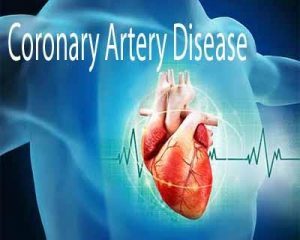- Home
- Editorial
- News
- Practice Guidelines
- Anesthesiology Guidelines
- Cancer Guidelines
- Cardiac Sciences Guidelines
- Critical Care Guidelines
- Dentistry Guidelines
- Dermatology Guidelines
- Diabetes and Endo Guidelines
- Diagnostics Guidelines
- ENT Guidelines
- Featured Practice Guidelines
- Gastroenterology Guidelines
- Geriatrics Guidelines
- Medicine Guidelines
- Nephrology Guidelines
- Neurosciences Guidelines
- Obs and Gynae Guidelines
- Ophthalmology Guidelines
- Orthopaedics Guidelines
- Paediatrics Guidelines
- Psychiatry Guidelines
- Pulmonology Guidelines
- Radiology Guidelines
- Surgery Guidelines
- Urology Guidelines
Elevated calcium levels raise heart attack risk : JAMA

A genetic predisposition to higher blood calcium levels was associated with an increased risk of coronary artery disease and heart attack, according to a study published by JAMA.
Calcium has a vital role in many biological processes in the body such as blood clotting. It is unclear whether lifelong elevated serum calcium may be causally associated with coronary artery disease (CAD) risk. Susanna C. Larsson, Ph.D., of the Karolinska Institutet, Stockholm, and colleagues conducted a method of analysis using genetic information known as mendelian randomization to examine the association of serum calcium with CAD and myocardial infarction (MI; heart attack). Mendelian randomization is the use of genetic variants that have a specific influence on possible risk factors to assess associations with explicit outcomes.
The analysis included 184,305 individuals (60,801 CAD cases [approximately 70 percent with MI] and 123,504 noncases) and six genetic variants related to serum calcium levels. The researchers found that a genetic predisposition to higher serum calcium levels was associated with an increased risk of CAD and heart attack.
"Whether the risk of CAD associated with lifelong genetic exposure to increased serum calcium levels can be translated to a risk associated with short-term to medium-term calcium supplementation is unknown," the authors write.
Several limitations of the study are noted in the article.
For more details click on the link : Susanna C. Larsson, Stephen Burgess, Karl Michaëlsson. Association of Genetic Variants Related to Serum Calcium Levels With Coronary Artery Disease and Myocardial Infarction. JAMA, 2017; 318 (4): 371 DOI: 10.1001/jama.2017.8981

Disclaimer: This site is primarily intended for healthcare professionals. Any content/information on this website does not replace the advice of medical and/or health professionals and should not be construed as medical/diagnostic advice/endorsement or prescription. Use of this site is subject to our terms of use, privacy policy, advertisement policy. © 2020 Minerva Medical Treatment Pvt Ltd